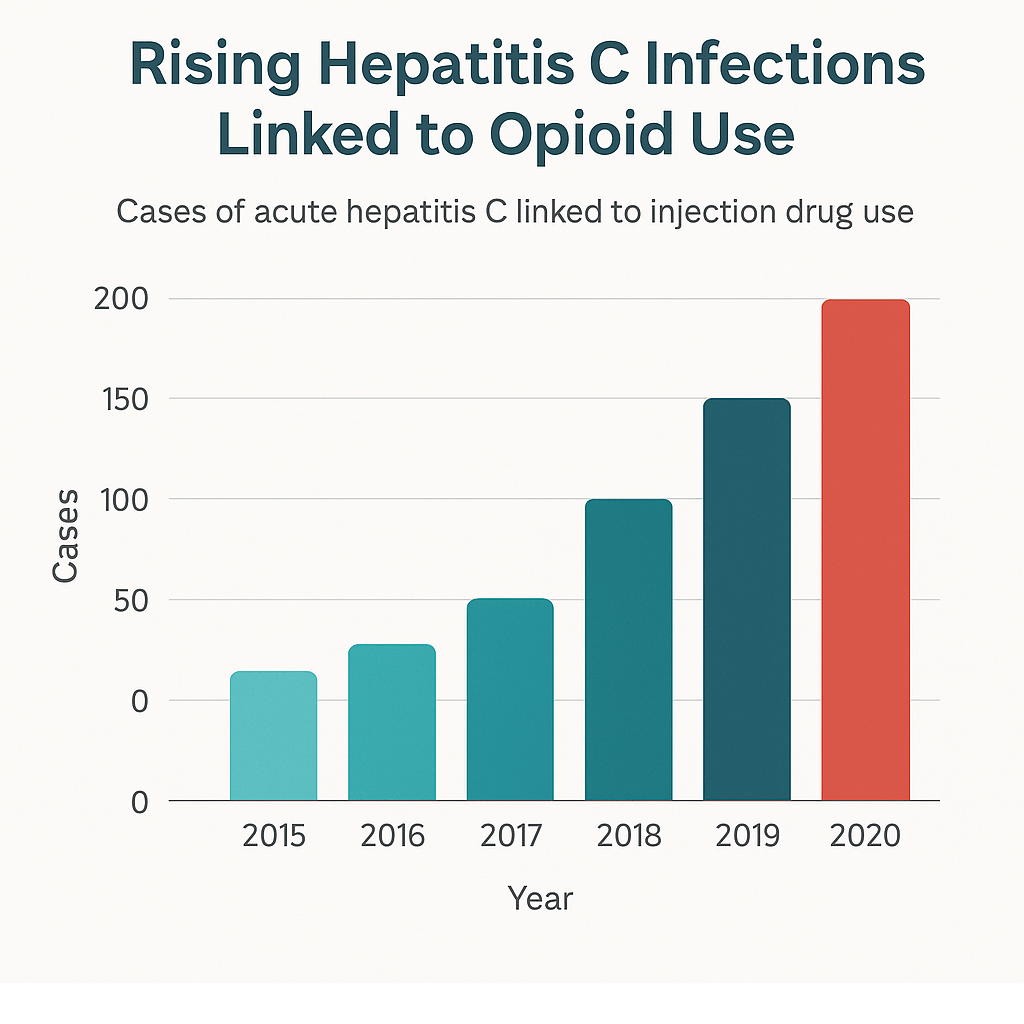Addiction and Hepatitis Statistics: What the Numbers Reveal About Risk and Recovery
Discover the link between substance use and hepatitis. Understanding the statistics behind this connection can help raise awareness, encourage early intervention, and support safer recovery journeys.
Understanding the Link Between Addiction and Hepatitis

Addiction—particularly intravenous drug use—is one of the leading causes of hepatitis transmission in the United States. Hepatitis B (HBV) and hepatitis C (HCV) are viral infections that affect the liver and are commonly spread through sharing contaminated needles, a behavior associated with opioid and stimulant addiction.
Key factors that connect addiction and hepatitis include:
Shared needles or equipment
Lack of access to clean injection tools
Increased risky behavior due to impaired judgment
Limited access to preventative care and screening
Recent Statistics on Addiction and Hepatitis
Here are some of the most eye-opening stats that reflect the current crisis:
Over 2.4 million people in the U.S. are living with hepatitis C.
Injection drug use accounts for up to 68% of new HCV infections annually.
People with substance use disorders are 6 to 10 times more likely to contract hepatitis C than the general population.
Nearly 30% of individuals in addiction treatment test positive for a form of viral hepatitis.
In some regions, rates of hepatitis C have quadrupled among people under 40 due to the opioid epidemic.
The Hidden Danger of Co-Infection

Many people are unaware they have hepatitis because it can remain asymptomatic for years. When combined with substance use, liver damage may go unnoticed until it’s severe. This is why routine testing and integrated care are essential for those undergoing addiction treatment.
How Inspire Recovery Center Helps
At Inspire Recovery Center, we take co-occurring health risks seriously. Our treatment plans integrate medical screening, education, and referrals for hepatitis testing when needed. We also emphasize harm reduction strategies and relapse prevention that lower health risks.
Key support strategies include:
Education on safe practices
Referrals to trusted medical providers
Behavioral therapies focused on long-term lifestyle change
Relapse prevention focused on minimizing health risks
Taking Control of Your Health
Being informed is the first step toward healing. If you or someone you love is struggling with addiction, know that the right treatment program can also protect against long-term health complications like hepatitis.
